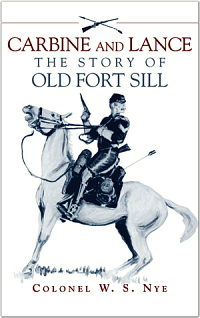Quotations


Ralph Waldo Emerson
Ne te quaesiveris extra—Do not seek the truth outside of yourself. Emerson took these lines from The Satires of Persius as the motto for his essay, “Self-Reliance,” and it’s strong advice whenever reading or listening to other people’s words.

Anonymous

But at that period it was not rare, nor is it at the present accounted an extraordinary spectacle in the moral world, to see the enemies of freedom among its most noisy advocates, and exclusive pretenders to publick virtue pursuing, with undivided regard, their own private interest.
Collections of the Massachusetts Historical Society for the Year 1792.

We shall not presume to anticipate the judgment of our fellow-citizens throughout the Union on these important letters, by interposing any comments of our own.
Four Letters on the Important Subject of Government, 1802.

John Adams

Resistance to sudden violence, for the preservation not only of my person, my limbs and life, but of my property, is an indisputable right of nature which I never surrendered to the public by the compact of society, and which, perhaps, I could not surrender if I would.
On Private Revenge, September 5, 1763.

There may be occasion to say very severe things, before I shall have finished what I propose, in opposition to this writer, but there ought to be no reviling. Rem ipsam die, mitte male loqui, which may be justly translated, speak out the whole truth boldly, but use no bad language.
Novanglus, No. 1, January 23, 1775.

Samuel Adams

If men through fear, fraud or mistake, should in terms renounce & give up any essential natural right, the eternal law of reason and the great end of society, would absolutely vacate such renunciation; the right to freedom being the gift of God Almighty, it is not in the power of Man to alienate this gift, and voluntarily become a slave.
Natural Rights of the Colonists as Men. November 20, 1772

If ye love wealth better than liberty, the tranquillity of servitude than the animating contest of freedom—go from us in peace. We ask not your counsels or arms. Crouch down and lick the hands which feed you. May your chains sit lightly upon you, and may posterity forget that ye were our countrymen!
Speech to the Philadelphia State House, August 1, 1776.

So great is the wickedness of some men, & the stupid servility of others, that one would be almost inclined to conclude that communities cannot be free. The few haughty families, think they must govern. The body of the people tamely consent & submit to be their slaves. This unravels the mystery of millions being enslaved by the few!
Letter to Richard Henry Lee, December 3, 1787.

George Berkeley

Where nature guides and virtue rules,
Where men shall not impose for truth and sense
The pedantry of courts and schools.
“On the Prospect of Planting Arts and Learning in America,” 1773.
 William Blackstone
William Blackstone

In vain may it be urged, that the good of the individual ought to yield to that of the community; for it would be dangerous to allow any private man, or even any public tribunal, to be the judge of this common good, and to decide whether it be expedient or no.
Blackstone’s Commentary, Ch. 1§III, 1765-1769.

Charles Carroll of Carrollton

The end of every legitimate Government is the security of life, liberty & property: if this country is to be revolutionised, none of these will be secured. Perhaps the leaders of the opposition, when they get into office, may be content to let the constitution remain as it is, & may pursue the policy & measures of Washington’s administration: but what will become in that case of their consistency? Patriots, you will say, are not always consistent; granted; yet other patriots & opposers will arise to arraign this inconsistency, & the storm once raised who will stop its fury?
Letter to James McHenry, November 4, 1800.

Cato’s Letters

Upon the whole, we must not judge of one another by our fair pretensions and best actions; since the worst men do some good, and all men make fine professions: But we must judge of men by the whole of their conduct, and the effects of it. Thorough honesty requires great and long proof; since many a man, long thought honest, has at length proved a knave. And it is from judging without proof, or too little, of false proof, that mankind continue unhappy.
Thomas Gordon, Cato’s Letter No. 31, 17221.

Men are naturally equal, and none ever rose above the rest but by force or consent: No man was ever born above all the rest, nor below them all; and therefore there never was any man in the World so good or so bad, so high or so low, but he had his fellow.
Thomas Gordon, Cato’s Letter No. 45, 1721.

By liberty, I understand the power which every man has over his own actions, and his right to enjoy the fruit of his labour, art, and industry, as far as by it he hurts not the society, or any members of it, by taking from any member, or by hindering him from enjoying what he himself enjoys.
Thomas Gordon, Cato’s Letter No. 62, 1722.

The fruits of a man’s honest industry are the just rewards of it, ascertained to him by natural and eternal equity, as is his title to use them in the manner which he thinks fit: And thus, with the above limitations, every man is sole lord and arbiter of his own private actions and property. A character of which no man living can divest him but by usurpation, or his own consent.
Thomas Gordon, Cato’s Letter No. 62, 1722.

John Dickinson
I am of their opinion, who think it almost as infamous to disgrace a good cause by illiberal language, as to betray it by unmanly timidity. Complaints may be made with dignity, insults retorted with decency; and violated rights vindicated without violence of words.
An Address to the Committee of Correspondence in Barbados, 1766.

Let us never forget that our Strength depends on our Union, and our Liberty on our Strength.—“United we conquer, divided we die.”
An Address read at a Meeting of Merchants, April 25, 1768.

What concerns all, should be considered by all; and individuals may injure a whole society, by not declaring their sentiments. It is therefore not only their right, but their duty, to declare them. Weak advocates of a good cause or artful advocates of a bad one, may endeavour to stop such communications, or to discredit them by clamour and calumny. This, however, is not the age for such tricks of controversy. Men have suffered so severely by being deceived upon subjects of the highest import, those of religion and freedom, that truth becomes infinitely valuable to them, not as a matter of curious speculation, but of beneficial practice—A spirit of inquiry is excited, information diffused, judgment strengthened.
Fabius, Delaware Gazette, April 10, 1788.

Ralph Waldo Emerson

A foolish consistency is the hobgoblin of little minds, adored by little statesmen and philosophers and divines.
“Self-Reliance,” 1847.

Parties keep the old names, but exhibit a surprising fugacity in creeping out of one snake-skin into another of equal ignominy and lubricity, and the grasshopper on the turret of Faneuil Hall gives a proper hint of the men below.
The Fortune of the Republic, March 30, 1878.

Benjamin Franklin

Experience keeps a dear school, but fools will learn in no other, and scarce in that.
“The Way to Wealth” (as Richard Saunders), July 7, 1757.

So convenient a thing is it to be a reasonable creature, since it enables one to find or make a reason for everything one has a mind to do.
Autobiograpy.

Ulysses S. Grant

But my later experience has taught me two lessons: first, that things are seen plainer after the events have occurred; second, that the most confident critics are generally those who know the least about the matter criticized.
Personal Memoirs, 1885.

Horace L. Hastings

Do not abuse people for believing what you once believed yourself.
“Earnest Words to Preachers,” The Christian, 1870.

Lynn H. Hughes

Americans are free—free to read, write, talk, and pray without permission from George III or other governmental power.
As United States District Judge, Temporary Restraint, Civil Action H-11-1992.

Abraham Lincoln

When the conduct of men is designed to be influenced, persuasion, kind, unassuming persuasion, should ever be adopted. It is an old and a true maxim, “that a drop of honey catches more flies than a gallon of gall.” So with men. If you would win a man to your cause, first convince him that you are his sincere friend. Therein is a drop of honey that catches his heart; which, say what he will, is the great high road to his reason, and which, when once gained, you will find but little trouble in convincing his judgment of the justice of your cause, if, indeed, that cause really be a just one.
Temperance Speech, February 22, 1842.

Francis Lieber

It is always dangerous, and has often proved in the last degree mischievous, to act on arbitrary maxims, vague conceits, or metaphorical expressions—the more mischievous and tragical the higher the sphere of thought or action may be.
“The Latin Race”, [New York] Evening Post, November 1871.

James Russell Lowell

Let us speak plain: there is more force in names
Than most men dream of; and a lie may keep
Its throne a whole age longer, if it skulk
Behind the shield of some fair-seeming name.
Let us call tyrants tyrants, and maintain
That only freedom comes by grace of God,
And all that comes not by His grace must fall;
For men in earnest have no time to waste
In patching fig-leaves for the naked truth.
“A Glance Behind the Curtain,” 1843.

Thet ‘s the old Amerikin idee,
To make a man a Man an’ let him be.
Mr. Hosea Biglow, 1866.

John Stuart Mill

War is an ugly thing, but not the ugliest of things: the decayed and degraded state of moral and patriotic feeling which thinks nothing worth a war is worse.
The Contest in America, 1862.

A man who has nothing which he is willing to fight for, nothing which he cares more about than he does about his personal safety, is a miserable creature, who has no chance of being free, unless made and kept so by the exertions of better men than himself.
The Contest in America, 1862.

Let not any one pacify his conscience by the delusion that he can do no harm if he takes no part, and forms no opinion. Bad men need nothing more to compass their ends, than that good men should look on and do nothing.
Inaugural Address, St. Andrews, 1867.

John Milton

For, indeed, none can love freedom heartily but good men; the rest love not freedom but licence, which never hath more scope, or more indulgence than under tyrants.
The Tenure of Kings and Magistrates, 1648.

No man, who knows aught, can be so stupid to deny, that all men naturally were born free, being the image and resemblance of God himself, and were, by privilege above all the creatures, born to command, and not to obey.
The Tenure of Kings and Magistrates, 1648.

Daniel Neal

When I am convinced of any mistakes, or unfair representations, I shall not be ashamed to retract them before the world; but facts are stubborn things, and will not bend to the humours and inclinations of artful and angry men; if these have been disguised or misreported, let them be set right in a decent manner, without the mean surmises of Plots and Confederacies, and whoever does it, shall have mine as well as the thanks of the publick.
The History of the Puritans, 1755.

Henry Wheeler Shaw

I honestly beleave it iz better tew know nothing than tew know what ain’t so.
Josh Billings, Sollum Thoughts, 1874.

Robert Smith

Ask council always of the wise,
give ear unto the end,
And ne’er refuse the sweet rebuke
of him that is thy friend.
John Foxe’s Book of Martyrs.

Joseph Story

Now, there will probably be found few persons in this, or any other Christian country, who would deliberately contend, that it was unreasonable, or unjust to foster and encourage the Christian religion generally, as a matter of sound policy, as well as of revealed truth.
Commentaries, § 1867, 1833.

Robert L. Stout

So with the subject, “Where the Law Fails,” unless I may point out some way to remedy the failure, I accomplish nothing more than the carping faultfinder, whose purpose is done when he gleefully points to his better brother’s glaring faults.
Where the Law Fails, July 8, 1909.
The distinguishing superiorities of our policy, are, the sovereignty of the people; a republican government, or a government producing publick or national good; and a thorough system of responsible representation.
Principles and Policy of the Government of the United States, 1814.

A sovereignty, popular or monarchical, ignorant of the principles by which it is preserved or destroyed, is first a cypher, then a tool, and finally the victim of its own servants. The folly both of a foolish people and a foolish king, consists in suffering the attention to be diverted from the moral nature of the acts and laws of their servants, to the frivolous names and treacherous professions of contending parties and rival courtiers.
Principles and Policy of the Government of the United States, 1814.

James Thomson

Are we a nation ruled by laws, or fury?
Galeus, Act V Scene IV, Coriolanus: A Tragedy, 1749 .

Joseph Warren

That personal freedom is the natural right of every man, and that property, or an exclusive right to dispose of what he has honestly acquired by his own labor, necessarily arises therefrom, are truths which common sense has placed beyond the reach of contradiction.
Oration, March 6, 1775.

George Washington

But, much indeed to be regretted, party disputes are now carried to such a length, and truth is so enveloped in mist and false representation, that it is extremely difficult to know through what channel to seek it. This difficulty to one, who is of no party, and whose sole wish is to pursue with undeviating steps a path, which would lead this country to respectability, wealth, and happiness, is exceedingly to be lamented. But such, for wise purposes it is presumed, is the turbulence of human passions in party disputes, when victory more than truth is the palm contended for, that “the post of honor is a private station.”
—To Timothy Pickering, Secretary of War, Mount Vernon, 27 July, 1795.

I wish well to all nations and to all men. My politics are plain and simple. I think every nation has a Right to establish that form of Government under which It conceives It shall live most happy; provided it infracts no Right or is not dangerous to others. And that no Governments ought to interfere with the internal concerns of Another, except for the security of what is due to themselves.
—To General Lafayette, Mount Vernon, 25 December, 1798.

John Greenleaf Whittier

It’s no use to boast of anything until it’s done, nor then, either, for it speaks for itself.
The Little Pilgrim, “The Fish I Didn’t Catch,” 1843.

James Wilson

Despotism, by an artful use of ‘superiority’ in politicks ; and scepticism, by an artful use of ‘ideas’ in metaphysicks, have endeavoured—and their endeavours have frequently been attended with too much success—to destroy all true liberty and sound philosophy.
Lectures on Law, Chap. II, “Of the General Principles of Law and Obligation,” 1790.

I have said, that the spirit of liberty will sometimes prevail over false theories of politicks. Unhappily I could not say more: I could not say, generally: far less could I say, always. Let us look around us and behold the sons of men, who inhabit this globe.
Lectures on Law, Chap. VI, “Of Man, as an Individual,” 1790.

The defence of one’s self, justly called the primary law of nature, is not, nor can it be abrogated by any regulation of municipal law. This principle of defence is not confined merely to the person; it extends to the liberty and the property of a man: it is not confined merely to his own person; it extends to the persons of all those, to whom he bears a peculiar relation—of his wife, of his parent, of his child, of his master, of his servant: nay, it extends to the person of every one, who is in danger; perhaps, to the liberty of every one, whose liberty is unjustly and forcibly attacked. It becomes humanity as well as justice.
Lectures on Law, Chap. XII, “Of the Natural Rights of Individuals,” 1790.

Xenophon

What it is that I offer you the second place in, I beg you to hear; and don’t believe anything I say, unless on reflection you judge it to be true.
“Hellen,” Jason’s advice to Polydamas of Pharsalus.



















Recent Comments